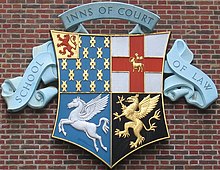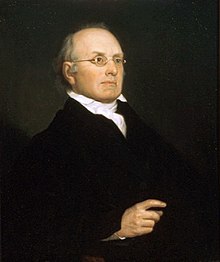Juris Doctor
[30]: 436 Therefore, formal schools of law were called for but were not finally established until later in the century, and even then the bar did not consider a university degree in admission decisions.[42] The older nomenclature continues to be used for the BCL at Oxford today, which is a master's level program, while Cambridge moved its LLB back to being a postgraduate degree in 1922 but only renamed it as the LLM in 1982.[43] Between the 1960s and the 1990s, law schools in England took on a more central role in the preparation of lawyers and consequently improved their coverage of advanced legal topics to become more professionally relevant.[31]: 782, 783 It was said by one famous attorney in the United States, William Livingston, in 1745 in a New York newspaper that the clerkship program was severely flawed, and that most mentors There were some few mentors that were dedicated to the service, and because of their rarity, they became so sought-after that the first law schools evolved from the offices of some of these attorneys, who took on many clerks and began to spend more time training than practicing law.[45]: 13 The apprenticeship programs often employed the trainee with menial tasks, and while they were well trained in the day-to-day operations of a law office, they were generally unprepared practitioners or legal reasoners.[45]: 15 In part to compete with the small professional law schools, there began a great change in United States university legal education.[31]: 798 United States Supreme Court justice Joseph Story started the spirit of change in legal education at Harvard, when he advocated a more "scientific study" of the law in the 19th century.The didactic approaches that resulted were revolutionary for university education and have slowly been implemented outside the United States, but only recently (since about 1997) and in stages.(such as at the College of William and Mary), but then Harvard, keen on importing legitimacy through the trappings of Oxford and Cambridge, implemented an LLB degree.Langdell served as dean of Harvard Law School from 1870 to 1895, and dedicated his life to reforming legal education in the United States.The historian Robert Stevens wrote that "it was Langdell's goal to turn the legal profession into a university educated one — and not at the undergraduate level, but through a three-year post baccalaureate degree.Therefore, a graduate, high-level law degree was proposed: the Juris Doctor, implementing the case and Socratic methods as its didactic approach.Some students at these universities advocated for the renaming of the graduate-entry LLB to the JD to recognise the graduate characteristics of the program and to obtain a so-called doctoral-level qualification.The course varies across different universities, though all are obliged to teach the Priestley 11 subjects per the requirements of state admissions boards in Australia.[85] JDs are considered equivalent to LLBs, and graduates must meet the same requirements to qualify, including undergoing a practical training.As with the second-entry LLB, in order to be admitted to a Juris Doctor program, applicants must have completed a minimum of two or three years of study toward a bachelor's degree and scored well on the North American Law School Admission Test.[97] To prepare graduates to practise in jurisdictions on both sides of the border, some pairs of law schools have developed joint Canadian-American JD programs.[104] In fall 2008, the Shenzhen graduate campus of Peking University started the School of Transnational Law, which offers a United States-style education and awards a Chinese Juris Doctor degree.[112] In Italy, only one program gives access to traditional legal professions such as lawyer, magistrate or public notary, and that is the Laurea Magistrale in Giurisprudenza.[114] The laurea magistrale in giurisprudenza is a five-year academic program, deemed a master's-level degree under the Bologna process,[115] that can be entered into with a high school diploma.[113] In a novel approach, a few universities are trialing a 3+2 model, which initially offers a bachelor's degree in law, followed by the option to undertake an additional two years to earn the Italian Juris Doctor.[118] Alternatively, graduates may opt for two additional years of study at the Scuole di Specializzazione per le Professioni Legali (Specialization Schools for the Legal Profession), leading to a Diploma di Specializzazione per le Professioni Legali (Specialization Diploma for the Legal Profession), akin to a master's degree.[119][120][121] Possession of the Laurea Magistrale in Giurisprudenza also qualifies individuals to partake in the competitive public examination, administered by the Ministry of Justice, for entry into the ordinary magistracy.Two-year JD programs for applicants with legal knowledge (mainly undergraduate level law degree holders) are also offered.[150]Accordingly, while most law professors are required to conduct original writing and research in order to be awarded tenure, the majority have a J.D.[160][161] In the late 1960s, the rising number of American law schools awarding JDs led to debate over whether lawyers could ethically use the title "doctor".[167] There was some dispute over whether only the Ph.D.-level Doctor of Juridical Science grant the title,[168] but ethics opinions have read the Code as allowing JD-holders to be called 'doctor', while acknowledging that the older Canons did not.[173] The Wall Street Journal notes specifically in its stylebook that "Lawyers, despite their JD degrees, aren't called doctor.[176] In 2011, Mother Jones published an article claiming that Michele Bachmann was misrepresenting her qualifications by using the "bogus" title "Dr." based on her JD.They later amended the article to note that the use of the title by lawyers "is a (begrudgingly) accepted practice in some states and not in others", although they maintained that it was rarely used as it "suggests that you're a medical doctor or a Ph.D. – and therefore conveys a false level of expertise.




Columbia Law Schoolprofessional degreeUnited StatesAustraliaCanadaHong KongAmerican Bar Associationprofessional doctorateresearch doctorateNational Center for Education Statisticsmaster's degreebachelor's degreebar examinationUnited States Patent and Trademark OfficePatent BaraccusativeLegum DoctorCambridge UniversityDoctor of PhilosophyUniversity of BolognaglossatorMiddle AgesUniversity of Paduaacademic degreesInns of Courtcommon lawEdward Imoot courtUniversity of OxfordUniversity of CambridgeCrusadesOxford and Cambridgecivil lawBachelor of Civil Lawpractical educationsolicitorsWilliam BlackstoneEnglish common lawQueen's University of IrelandbarristersAmerican Revolutioncommonplace bookWilliam LivingstonTapping ReeveLitchfield Law SchoolCollege of William and MaryUniversity of MarylandCiceroSenecaMontesquieuGrotiusstatesmenStanford UniversityJoseph StoryLangdellpostgraduateLegal education in the United StatesPre-lawLaw schoolLegal clinicMaster of LawsDoctor of Juridical ScienceAdmission to the barContinuing legal educationLaw School Admission CouncilAssociation of American Law SchoolsPractising Law InstituteC.C. LangdellHarvard Law Schoollegal educationcase methodSocratic methodJ. H. BealeUniversity of Chicago Law SchoolIllinoisSuffolk Law SchoolLegal education in the United KingdomBar Professional Training CoursepupillageLegal Practice Courseperiod of recognised trainingintegrated master's degreescasebookUniversity of ChicagoUniversity of New South WalesUniversity of SydneyAustralian National UniversityUniversity of MelbourneMonash UniversityWestern Sydney UniversityPriestley 11Australian Qualifications FrameworkUniversity of TorontoLaw School Admission TestUniversité de MontréalUniversité de SherbrookeQuebec civil lawYork UniversityChinese University of Hong KongThe University of Hong KongCity University of Hong Kongcanon lawBologna processhigh school diplomaItaliandoctorattorney in JapanPhilippinesAteneo de Manila Law SchoolUniversity of the Philippines College of LawPamantasan ng Lungsod ng MaynilaSilliman University College of LawDe La Salle University College of LawQuality Assurance AgencyQueen's University BelfastUniversity College LondonKing's College LondonLondon School of EconomicsColumbia UniversityGeorgetown UniversityUniversity of ExeterUniversity of SouthamptonUniversity of SurreyUniversity of YorkDepartment of EducationEuropean Research Council